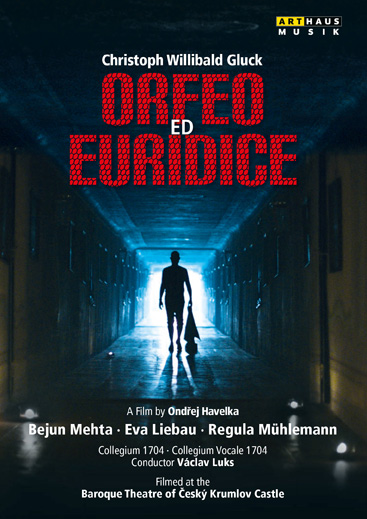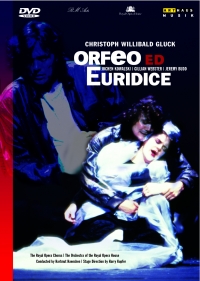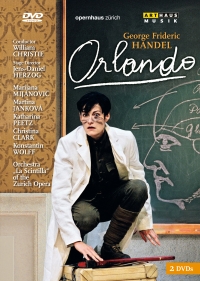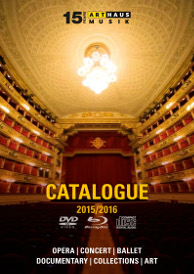
ORFEO ED EURIDICE
Christoph Willibald Gluck




Christoph Willibald Gluck
ORFEO ED EURIDICE
2013
Soloists:
Bejun Mehta, Eva Liebau, Regula Mühlemann
Orchestra, Chorus:
Collegium 1704, Collegium Vocale 1704
Conductor:
Václav Luks
Director:
Ondřej Havelka
The Baroque Theatre of Český Krumlov Castle provides an ideal setting for one of the most important operas in music history, Christoph Willibald Gluck’s “Orfeo ed Euridice”. Director Ondřej Havelka captures much more than a stage performance: combining period details with modern psychological interpretation he chooses a cinematic approach that literally takes us behind the scenes of this unique venue. Bejun Mehta, ‘arguably the best countertenor in the world today’ (Sueddeutsche Zeitung), lends credibility to the emotions tormenting Orfeo’s heart. As his beloved Euridice, Austrian soprano Eva Liebau juggles joy and jealousy. Bringing comic relief to the work’s dark tone is Regula Mühlemann as Amore, who cheerily sends mortals zigzagging on their way to life, love – and, maybe, death. Under the baton of baroque specialist Václav Luks, the splendid soloists are supported by the Prague orchestra and vocal ensemble Collegium 1704 and Collegium Vocale 1704. This is the perfect new release to celebrate Gluck’s 300th anniversary in 2014!
Label:
Arthaus Musik
Genre:
Oper
Running Time:
75
Picture Format:
16:9
Sound Format:
PCM Stereo / Dolby Digital 5.0
Number of Discs:
1
Region:
0
Languages:
IT
Subtitle Languages:
IT, GB, DE, FR, ES, KOR
EAN:
0807280218497
UPC:
807280218497
Blu-ray:
108103

Christoph Willibald Gluck
Harry Kupfer's version of Gluck's Orfeo ed Euridice, originally conceived for the Berlin Komische Oper and now in the repertory of The Royal Opera, won the Olivier Award for ''Most Outstanding Achievement in Opera''. According to legend, Orpheus' magical power as a musician enabled him to regain his wife from the dead(...)

George Frideric Handel
“Orlando teaches all of us that love is often responsible for our loss of reason,” runs a line from Act 3 of the opera. It is a modest moral, and perhaps one not demanding of the dramatic finesse and musical diversity that Handel serves up in Orlando – for the opera’s complex of problems is rather more complicated than that. Yet despite such(...)









 PDF Download (5,5 MB)
PDF Download (5,5 MB) PDF Download (6,7 MB)
PDF Download (6,7 MB)